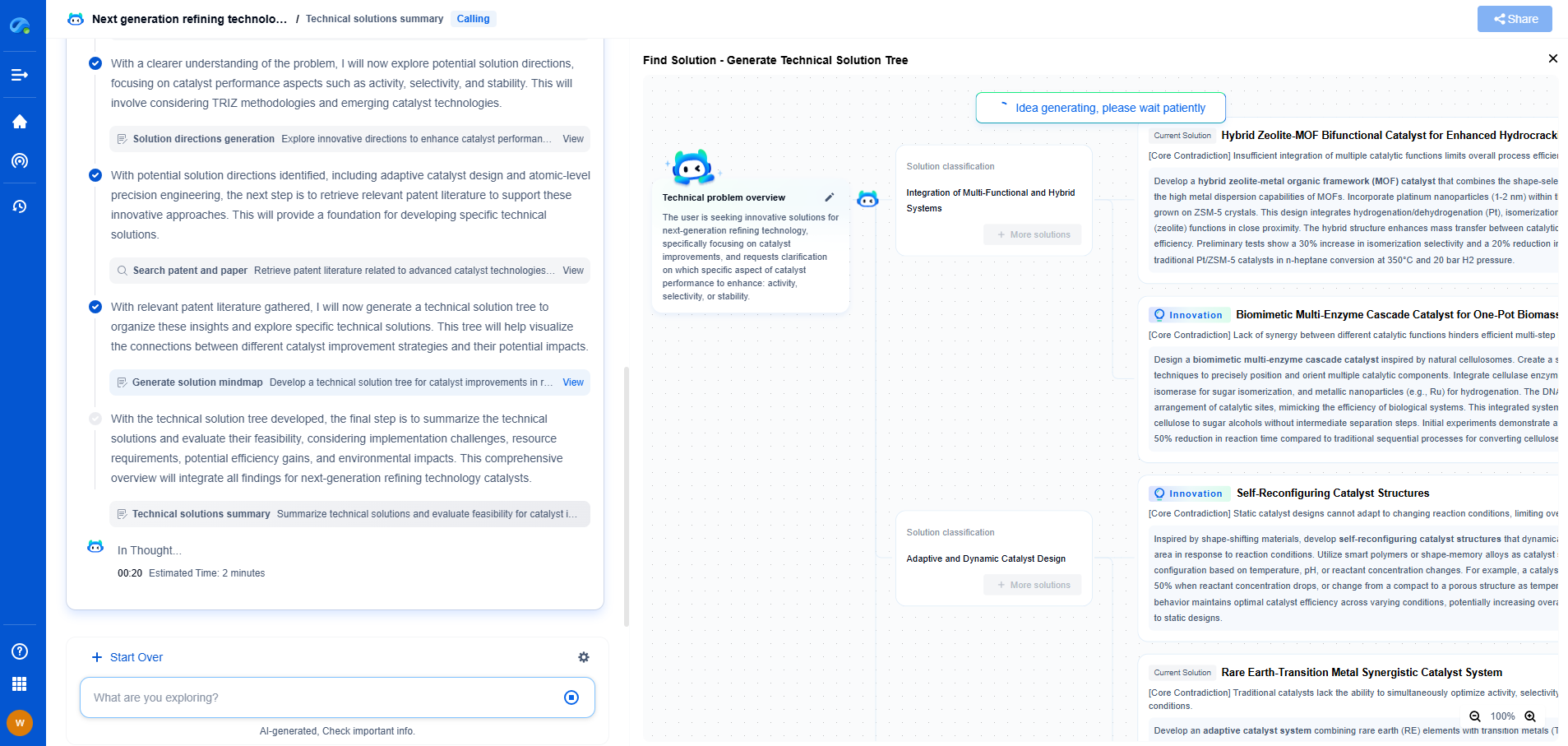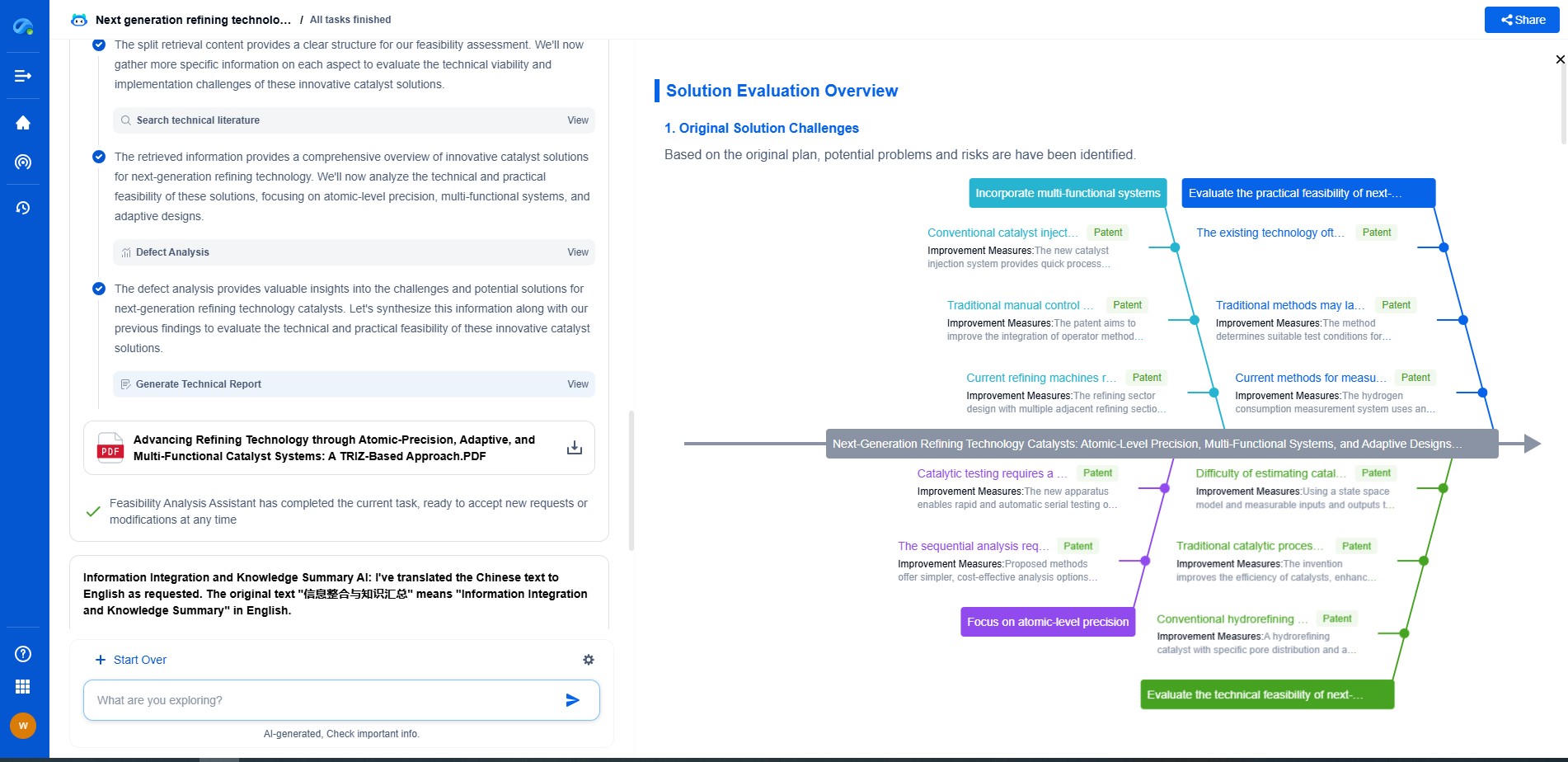RoboDK vs. DELMIA: Which Handles 6-Axis Machining Paths Better?
JUN 26, 2025 |
In the complex world of manufacturing and production, the role of computer-aided design (CAD) and computer-aided manufacturing (CAM) software is pivotal. They streamline processes, improve precision, and elevate efficiency, especially when handling multi-axis machining tasks. Among several software solutions, RoboDK and DELMIA are two prominent players known for their capabilities in handling 6-axis machining paths. Delving into their features, strengths, and weaknesses will help us understand which platform stands out in managing this sophisticated task.
Understanding RoboDK's Approach
RoboDK is renowned for its flexibility and affordability in robotic programming. It has carved its niche due to its user-friendly interface and ability to integrate with a wide variety of industrial robots. When it comes to 6-axis machining, RoboDK offers several key advantages:
1. **Ease of Use**: RoboDK is designed with user-friendliness in mind. Its interface is intuitive, making it accessible even to users with limited programming experience. This attribute becomes particularly beneficial when dealing with complex 6-axis machining paths.
2. **Simulation Capabilities**: RoboDK provides robust simulation tools that allow users to visualize machining paths before actual execution. This capability is crucial for identifying potential issues and optimizing paths for efficiency and precision.
3. **Cost-Effectiveness**: Compared to other high-end solutions, RoboDK is more budget-friendly. This makes it an attractive choice for small to medium-sized enterprises looking to incorporate advanced machining capabilities without breaking the bank.
Despite these strengths, RoboDK does have its limitations. While it is highly versatile, users may encounter constraints when scaling up to handle extremely complex or large-scale tasks that require substantial computational resources.
DELMIA's Strengths in Machining
On the other hand, DELMIA, developed by Dassault Systèmes, is a comprehensive digital manufacturing solution. It is part of the 3DEXPERIENCE platform, which enables seamless integration with other modules for a holistic approach to manufacturing. Its key strengths in managing 6-axis machining paths include:
1. **Advanced Features**: DELMIA offers advanced features tailored for complex and precise machining tasks. Its ability to handle intricate geometries and optimize machining paths sets it apart for industries requiring high precision, such as aerospace and automotive.
2. **Integration and Scalability**: Being part of the 3DEXPERIENCE platform, DELMIA allows for seamless integration with other engineering, design, and simulation tools. This capability enhances collaboration and scalability, making it suitable for large projects and enterprises.
3. **High-Precision Machining**: DELMIA's robust algorithms and simulation capabilities ensure high precision in machining tasks. Its powerful computation and modeling tools support the delivery of complex projects with minimal errors.
However, DELMIA's extensive features come with a steep learning curve and higher costs. It demands skilled personnel and significant investment, which might not be feasible for smaller companies.
Comparative Analysis
When comparing RoboDK and DELMIA in handling 6-axis machining paths, the choice largely depends on the specific needs and constraints of the user.
- **For smaller companies or projects with limited budgets**, RoboDK presents a more straightforward, cost-effective solution that gets the job done with reasonable efficiency and precision. Its ease of use and affordability make it an attractive option.
- **For larger enterprises or projects demanding high precision and integration**, DELMIA offers a more powerful solution. Its advanced features and scalability make it suitable for complex machining tasks, although at a higher cost and complexity.
Conclusion
The decision between RoboDK and DELMIA hinges on the balance between cost, complexity, precision, and scalability. While RoboDK excels in accessibility and affordability, DELMIA shines in precision and comprehensive integration. Understanding the unique strengths and trade-offs of each platform is crucial for making an informed choice that aligns with your machining needs and organizational goals.
Ready to Redefine Your Robotics R&D Workflow?
Whether you're designing next-generation robotic arms, optimizing manipulator kinematics, or mining patent data for innovation insights, Patsnap Eureka, our cutting-edge AI assistant, is built for R&D and IP professionals in high-tech industries, is built to accelerate every step of your journey.
No more getting buried in thousands of documents or wasting time on repetitive technical analysis. Our AI Agent helps R&D and IP teams in high-tech enterprises save hundreds of hours, reduce risk of oversight, and move from concept to prototype faster than ever before.
👉 Experience how AI can revolutionize your robotics innovation cycle. Explore Patsnap Eureka today and see the difference.
- R&D
- Intellectual Property
- Life Sciences
- Materials
- Tech Scout
- Unparalleled Data Quality
- Higher Quality Content
- 60% Fewer Hallucinations
Browse by: Latest US Patents, China's latest patents, Technical Efficacy Thesaurus, Application Domain, Technology Topic, Popular Technical Reports.
© 2025 PatSnap. All rights reserved.Legal|Privacy policy|Modern Slavery Act Transparency Statement|Sitemap|About US| Contact US: help@patsnap.com

